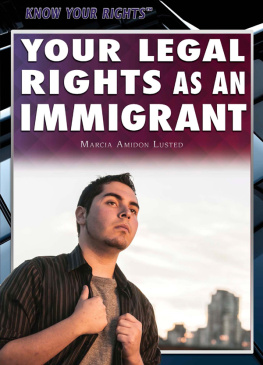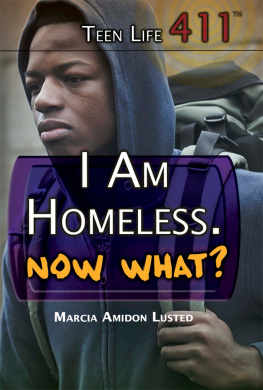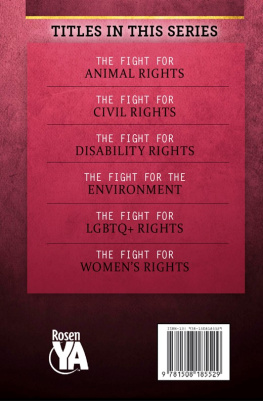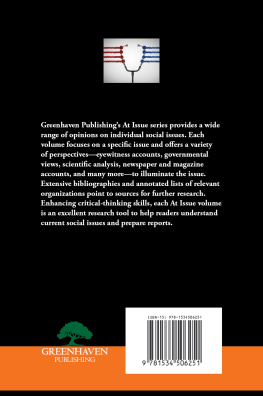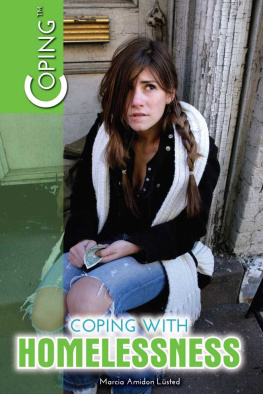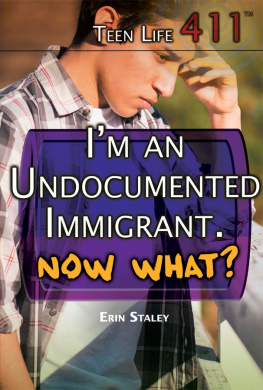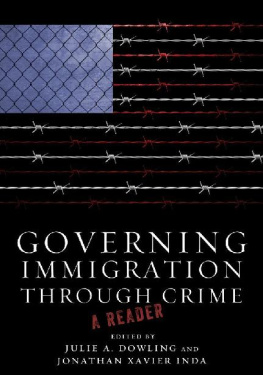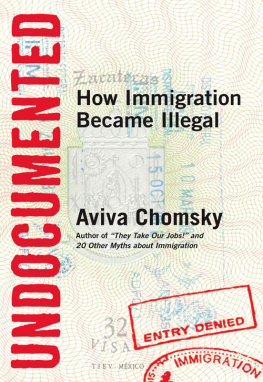Published in 2016 by The Rosen Publishing Group, Inc.
29 East 21st Street, New York, NY 10010
Copyright 2016 by The Rosen Publishing Group, Inc.
First Edition
All rights reserved. No part of this book may be reproduced in any form without permission in writing from the publisher, except by a reviewer.
Expert Reviewer: Lindsay A. Lewis, Esq.
Library of Congress Cataloging-in-Publication Data
Lusted, Marcia Amidon, author.
Your legal rights as an immigrant/Marcia Amidon Lusted.
pages cm.(Know your rights)
Includes bibliographical references and index.
ISBN 978-1-4777-8102-9 (library bound)
ISBN 978-1-4777-8618-5 (pbk.) ISBN 978-1-4994-3675-4 (6-pack)
1. ImmigrantsLegal status, laws, etc.United StatesJuvenile literature. 2. Emigration and immigration lawUnited StatesJuvenile literature. 3. Aliens United StatesJuvenile literature. I. Title.
KF4819.L87 2015
342.73083dc23
2014012137
Manufactured in the United States of America
INTRODUCTION
S tephen Lopez was eighteen years old and a recent high school graduate. He had moved from Mexico to Las Vegas, Nevada, when he was just a child and had done well in school. His family wasnt rich, but things were going well for them; Stephens father had a good, steady job at his brothers body shop.
But one night, everything changed. Stephen was driving home and was hit by a driver who had run a red light. Even though the accident wasnt Stephens fault, the police asked him to show his drivers license and registration. There was just one problem: Stephen was not a legal resident of the United States. This lack of citizenship meant that he could not get a drivers license in Nevada, which in turn meant that he couldnt get car insurance.
Stephen was taken to jail. Unfortunately, this particular night was one when the Department of Homeland Security did one of its frequent checks of the jail, making sure that everyone held there was either a U.S. citizen or legally allowed to be in the country. Stephen, of course, could not prove either of these things. When his parents came to bail him out, they couldnt show that they were residents either, because they werent. All three of them were classified as illegal aliens. Only Stephens younger sister, Maria, who had been born in the United States, was a U.S. citizen.
The Lopez family was given a notice to appear in court for the proceedings that would send them back to Mexico. Mr. Lopez had actually started the process to become a legal citizenwith sponsorship by his brother but because this procedure took a long time (as long as ten to twenty years in some cases, depending on the immigrants country of origin), it hadnt been completed by the time of Stephens accident.
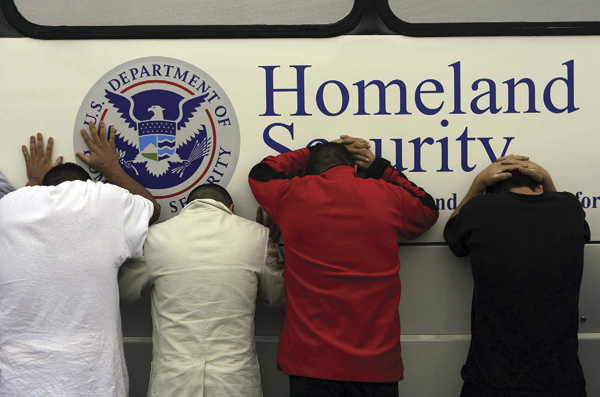
Many immigrants who try to enter the United States illegally from Mexico are caught and detained before being escorted back to their own country.
The Lopez familys immigration attorney could do very little for them other than offer up the possibility that the family might be able to stay because of the hardship it would cause Maria to be left alone in the United States. But as her uncle did live nearby, this possible outcome would be difficult to prove. It looked as though the family might have to split up, with Stephen and his parents going back to Mexico and Maria staying in Las Vegas.
All of Marias schooling had been in Las Vegas, her friends were there, and it is where her culture and much of her social background came from. Although Stephen had not been born in the United States, he felt more American than Mexican. However, there existed no basis for him to be able to stay in the country of his choice, unless things changed drastically.
This scenario, which comes from a play on immigration entitled Home Is Where the Heart Is...Or Is It? illustrates just one of the situations that teens encounter when they are living illegally in the United States. For teens who have lived in the United States for much of their lives, and who feel thoroughly American as a result, just a small incident such as a traffic accident can snowball into being deported from the only homes they have ever known.
How exactly does a teen find himself or herself in the situation of being an undocumented or illegal immigrant in the United States? And what exactly does such a status mean in terms of rights under the law? Read on to learn about the problem and some possible courses of action to take.
CHAPTER 1
UNDOCUMENTED
M ost teens in the United States never think twice about their right to be here. They were born in the United States, have the birth certificates and Social Security numbers to prove it, and enjoy all the rights and privileges that go with citizenship. They also know that they have certain rights under the law simply because they are U.S. citizens.
However, there is a growing number of teens who exist outside of the protection of citizenship or permanent residency. (The latter designation carries the same strength as citizenship when someone is arrested or otherwise involved with the law.) Such teenagers may have lived in the United States for as long as they can remember. They are often indistinguishable from American teens in the music they listen to, the foods they like, the clothes they wear, and the things they like to do for fun. However, they are not U.S. citizens because (1) they were not born here or (2) they were not born to parents who are U.S. citizens. They may have come to the United States illegally from another country; come here legally as tourists or students and stayed beyond the limits of their visas; or come here to work at a specific company with work visas, which are applicable only for a certain period of time and under certain specific circumstances. No matter what their reason is for being in the country, they are classified as illegal or undocumented aliens.

Most babies born in the United States will grow up never questioning the rights and privileges they enjoy as citizens.
WHATS IN A NAME?
Is there a difference between being undocumented and being illegal? And why are people referred to as aliens and not simply as immigrants? Essentially, it depends on who is doing the naming.
According to the Workers Defense Project, an organization that supports low-income workers such as immigrants, the difference in language is more about judgment than accuracy:
Most immigrant rights organizations consider the term illegal alien to be derogatory and legally inaccurate. The word illegal carries a series of negative implications. For example, it is often assumed that illegal people have no civil or workplace rights, when in fact, all people haverights regardless of immigration status. Additionally, some people falsely think that entering the country without a visa is a felony crime, when in fact it is a civil violation (such as not paying your taxes accurately). Undocumented is a more accurate and dignified term because it simply means an immigrants status is not documented by immigration authorities.

